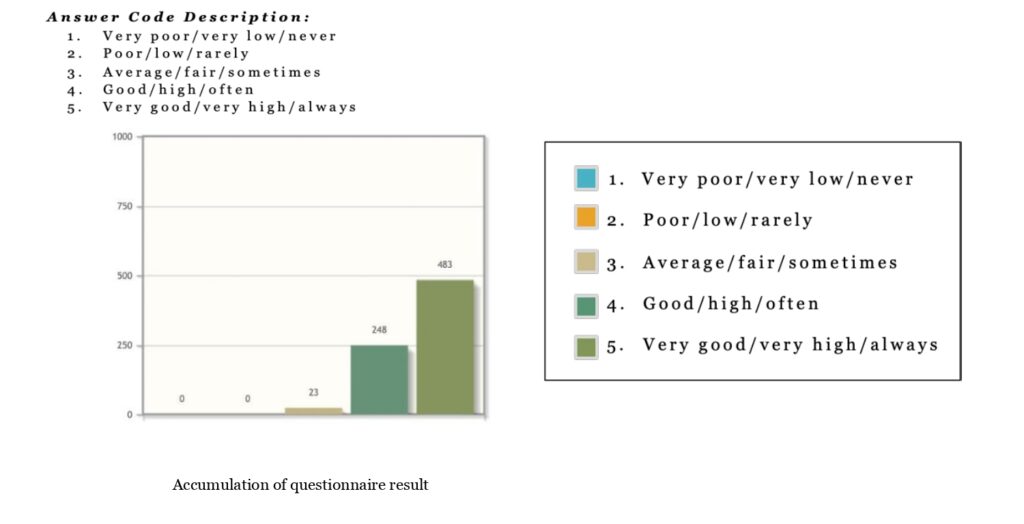Philosophy of Science
Overview
Course Code
MPK60006
Credits
2
Semester
II
Frequency
Even
Type
General Course
Class Size
30
Duration
16 meetings
Student Workload
119 hours
Contact Hours
35 hours
Independent Study
42 hours
Description
The Philosophy of Science course is a Philosophy course with the field of study being Science. For non-philosophy (Cultural Sciences) students, this course is intended to provide some basic insights in understanding their respective scientific positions in the midst of a broad scientific treasury. Therefore, lecture materials are avoided from pure philosophy lecture material and are more directed towards an orientation of opening insights (open mind) about several important things related to Science. These basic things are Knowledge, Philosophy, Religion, and some enlightening critical debates, as well as some discourses about the changing paradigm of sciences ranging from very strict scientific to random searches for truth in non-scientific spaces. In the last four meetings, students are more invited to realize the relevance of the philosophy of science and its ethical application in the humanities. In short, this course is intended to make humanities students not narrow in their view of science, but open to the diversity of sciences that are currently developing very rapidly and specifically. The specification of the science they are studying is just one small field that must make peace and be brothers and sisters with other sciences.
beberapa wawasan dasar dalam memahami posisi keilmuan masing-masing di tengah
khazanah keilmuan yang luas. Oleh karena itu, materi-materi perkuliahan dihindarkan dari
materi kuliah filsafat murni dan lebih diarahkan pada orientasi pembukaan wawasan (open
mind) tentang beberapa hal penting terkait Ilmu. Hal-hal mendasar itu adalah Pengetahuan, Filsafat, Agama, dan beberapa perdebatan kritis yang mencerahkan, serta beberapa diskursus
tentang perubahan paradigma ilmu-ilmu mulai dari yang sangat ketat ilmiah hingga pencarian
kebenaran secara acak di ruang-ruang non ilmiah. Pada empat pertemuan terakhir, mahasiswa lebih diajak untuk menyadari relevansi filsafat ilmu dan etika penerapannya di
dalam ilmu-ilmu humaniora. Singkatnya, mata kuliah Ini dimaksudkan supaya mahasiswa ilmuilmu humaniora tidak sempit memandang ilmu, tapi terbuka pada keragaman ilmu yang
dewasa ini berkembang sangat pesat dan spesifik. Spesifikasi ilmu yang mereka tekuni
hanyalah salah satu bidang kecil yang mesti berdamai dan bersaudara dengan ilmu-ilmu
lain.
Course Content
- Understand the human adventure in search of truth
- Understand the categories of truth of Science, Philosophy, Religion
- Understanding truth through the phenomenology of religion
- Understand the tree of knowledge and the integration of sciences
- Recognize the basic lines of philosophy in obtaining truth empiricism and rationalism
- Recognize the basic schools of philosophy in obtaining truth structuralism and post-structuralism
- Memahami paradigma ilmu-ilmu: positivisme dan induktivisme serta permasalahannya
- Understanding the dynamics of Lakatos' Safety Belt to answer Popper's Falsification and Thomas Kuhn's Paradigm Shift
- Understand Feyerabend's Epistemological Anarchism view and Umberto Eco's Abduction theory
- Draw philosophical ideas into the realm of Language Science
- Draw philosophical ideas into the realm of Education Science
- Draw philosophical ideas into the realm of Art Science
- Draw pragmatically on philosophical ideas in Applied Ethics
Reference
Primary Literature
- Gaardner, Jostein, 1996, Dunia Sophie, Bandung: Mizan
- Hadiwijono, Harun, 1980, Sari Sejarah Filsafat Barat 1, Yogyakarta: Kanisius
- Hadiwijono, Harun, 1980, Sari Sejarah Filsafat Barat 2, Yogyakarta: Kanisius
- K. Bertens, 2002, Filsafat Barat Kontemporer, Inggris-Jerman, Jakarta: Gramedia
Primary Literature - Keraf, A. (2001). Sony dan Mikhael Dua. Ilmu Pengetahuan. Sebuah Tinjauan Filosofis. Yogyakarta Penerbit Kanisius. 6. Madjid, Nurcholish (ed.), 1999, Passing Over: Melintas Batas Agama, Jakarta: Gramedia
- Palmquist, Stephen. Pohon Filsafat. Pustaka Pelajar
- Tim Redaksi Driyarkara (ed.) Hakikat Pengetahuan: Cara Kerja Ilmu-ilmu, Jakarta: Gramedia, 1993
- Tjahjadi, S. P. L. (2004). Petualangan Intelektual. Yogyakarta: Kanisius.
- Wibisono, Koento, 1983, Arti Perkembangan Menurut Filsafat Positivisme Auguste
Comte, Yogyakarta: Gajah Mada University Press
Supporting Literature
- Dewantara, Ki Hajar, 2009, Menuju Manusia Merdeka, Yogyakarta: Leutika
- Dhavamony, Mariasusai, 1995, Fenomenologi Agama, Yogyakarta: Kanisius
- F. Budi Hardiman, 2004, Filsafat Modern, dari Machiavelli sampai Nietzsche, Yogyakarta, Jakarta: Gramedia Pustaka Utama
- Freire, Paulo, 2000, Pedagogy of Freedom: Ethics, Democracy, and Civic Courage (Critical Perspectives Series: A Book Series Dedicated to Paulo Freire), translated by
Patrick Clarke, New York: Rowman & Littlefield Publishers, Inc. - Kaelan, 1998, Filsafat Bahasa: Masalah dan Pengembangannya, Yogyakarta: Paradigma
- Mustansyir, Rizal dan Misnal Munir, Filsafat Ilmu, Pustaka Pelajar. Yogyakarta, 2003
- Sudiarja, A., dkk. (ed.), 2006, Karya Lengkap Driyarkara, Jakarta: Gramedia Pustaka
Utama - Sugiharto, Bambang. 2013. Untuk Apa Seni?. Bandung: Pustaka Matahari
- Suryajaya, Martin, 2016, Sejarah Estetika, Jakarta Barat: Gang Kabel
Assessment System
Assessment Matrix
- Participation 15%
- Structured Assignment 15%
- Midterm 25%
- Final Exam 35%
- Peer-Assessment
Peer-Assessment
The percentage of student contribution is taken from the score given by group members to other group members (peer-assessment) regarding the contribution in the process of working on the task from beginning to end.
- Score 100% if the assessed member fully participates from start to finish
- Score 75% if the assessed member participates actively, although sometimes less involved
- Score 50% if the assessed member participates, although often not involved
- Score 25% if the assessed member only appears at the beginning/middle/end only
- Score 0% if the assessed member is not involved at all
- The student contribution percentage score is the total number of peer-assessments divided by the number of group members who were assessed
Students Feedback


